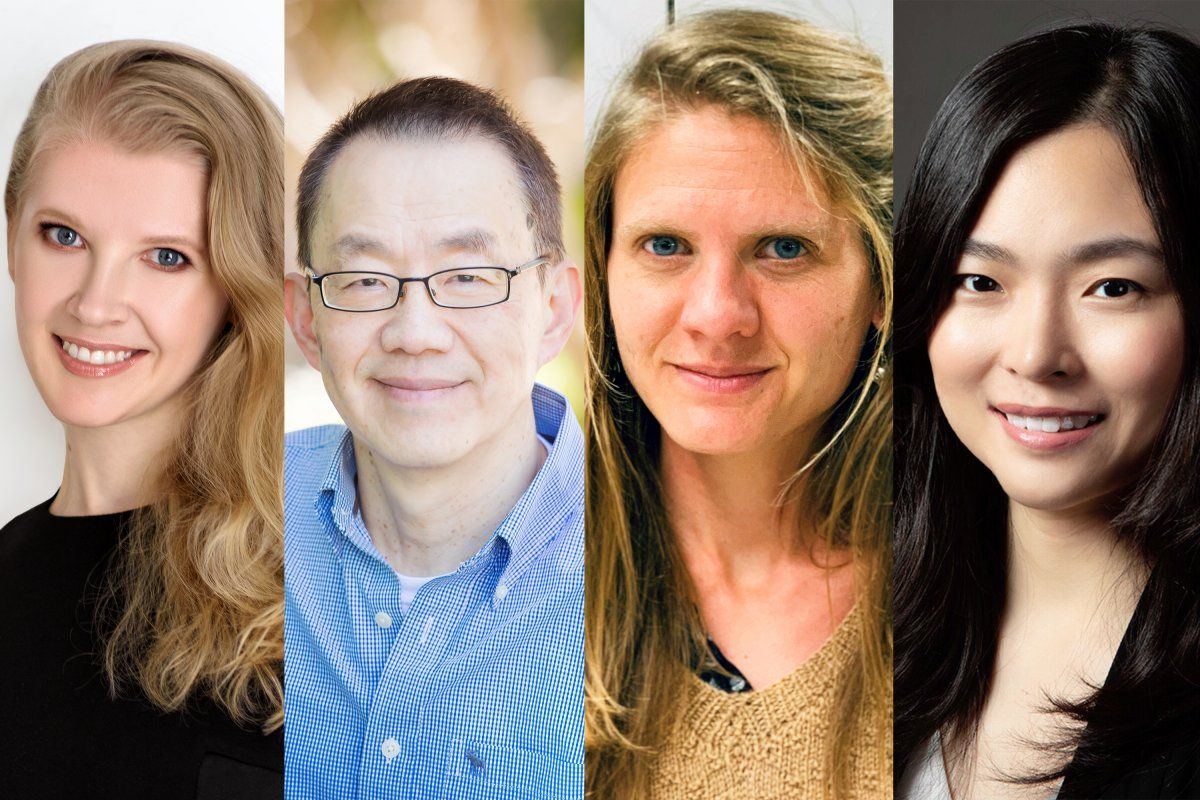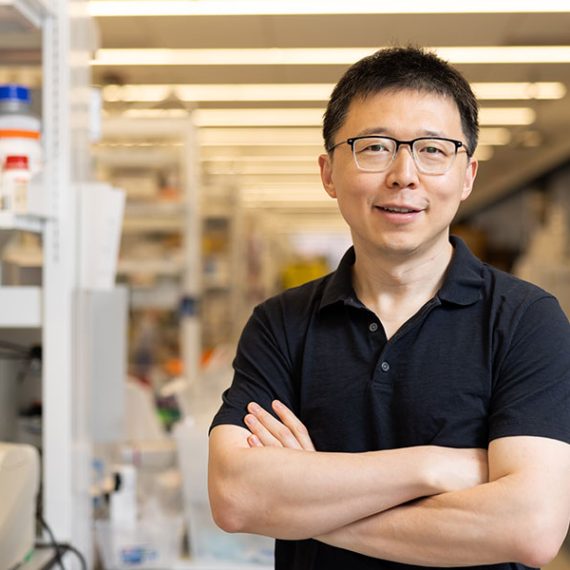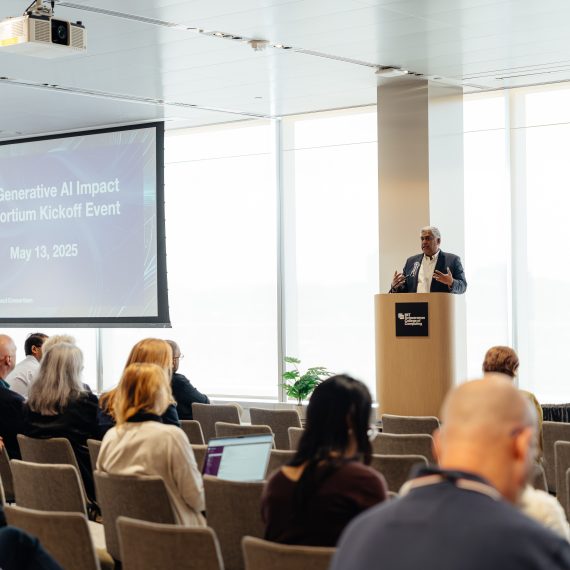Four new faces in the School of Science faculty
Departments of Biology, Brain and Cognitive Sciences, and Chemistry welcome new faculty members.

This fall, the School of Science will welcome four new members joining the faculty in the departments of Biology, Brain and Cognitive Sciences, and Chemistry.
Evelina Fedorenko investigates how our brains process language. She has developed novel analytic approaches for functional magnetic resonance imaging (fMRI) and other brain imaging techniques to help answer the questions of how the language processing network functions and how it relates to other networks in the brain. She works with both neurotypical individuals and individuals with brain disorders. Fedorenko joins the Department of Brain and Cognitive Sciences as an assistant professor. She received her BA from Harvard University in linguistics and psychology and then completed her doctoral studies at MIT in 2007. After graduating from MIT, Fedorenko worked as a postdoc and then as a research scientist at the McGovern Institute for Brain Research. In 2014, she joined the faculty at Massachusetts General Hospital and Harvard Medical School, where she was an associate researcher and an assistant professor, respectively. She is also a member of the McGovern Institute.
Morgan Sheng focuses on the structure, function, and turnover of synapses, the junctions that allow communication between brain cells. His discoveries have improved our understanding of the molecular basis of cognitive function and diseases of the nervous system, such as autism, Alzheimer’s disease, and dementia. Being both a physician and a scientist, he incorporates genetic as well as biological insights to aid the study and treatment of mental illnesses and neurodegenerative diseases. He rejoins the Department of Brain and Cognitive Sciences (BCS), returning as a professor of neuroscience, a position he also held from 2001 to 2008. At that time, he was a member of the Picower Institute for Learning and Memory, a joint appointee in the Department of Biology, and an investigator of the Howard Hughes Medical Institute. Sheng earned his PhD from Harvard University in 1990, completed a postdoc at the University of California at San Francisco in 1994, and finished his medical training with a residency in London in 1986. From 1994 to 2001, he researched molecular and cellular neuroscience at Massachusetts General Hospital and Harvard Medical School. From 2008 to 2019 he was vice president of neuroscience at Genentech, a leading biotech company. In addition to his faculty appointment in BCS, Sheng is core institute member and co-director of the Stanley Center for Psychiatric Research at the Broad Institute of MIT and Harvard, as well as an affiliate member of the McGovern Institute and the Picower Institute.
Seychelle Vos studies genome organization and its effect on gene expression at the intersection of biochemistry and genetics. Vos uses X-ray crystallography, cryo-electron microscopy, and biophysical approaches to understand how transcription is physically coupled to the genome’s organization and structure. She joins the Department of Biology as an assistant professor after completing a postdoc at the Max Plank Institute for Biophysical Chemistry. Vos received her BS in genetics in 2008 from the University of Georgia and her PhD in molecular and cell biology in 2013 from the University of California at Berkeley.
Xiao Wang is a chemist and molecular engineer working to improve our understanding of biology and human health. She focuses on brain function and dysfunction, producing and applying new chemical, biophysical, and genomic tools at the molecular level. Previously, she focused on RNA modifications and how they impact cellular function. Wang is joining MIT as an assistant professor in the Department of Chemistry. She was previously a postdoc of the Life Science Research Foundation at Stanford University. Wang received her BS in chemistry and molecular engineering from Peking University in 2010 and her PhD in chemistry from the University of Chicago in 2015. She is also a core member of the Broad Institute of MIT and Harvard.




